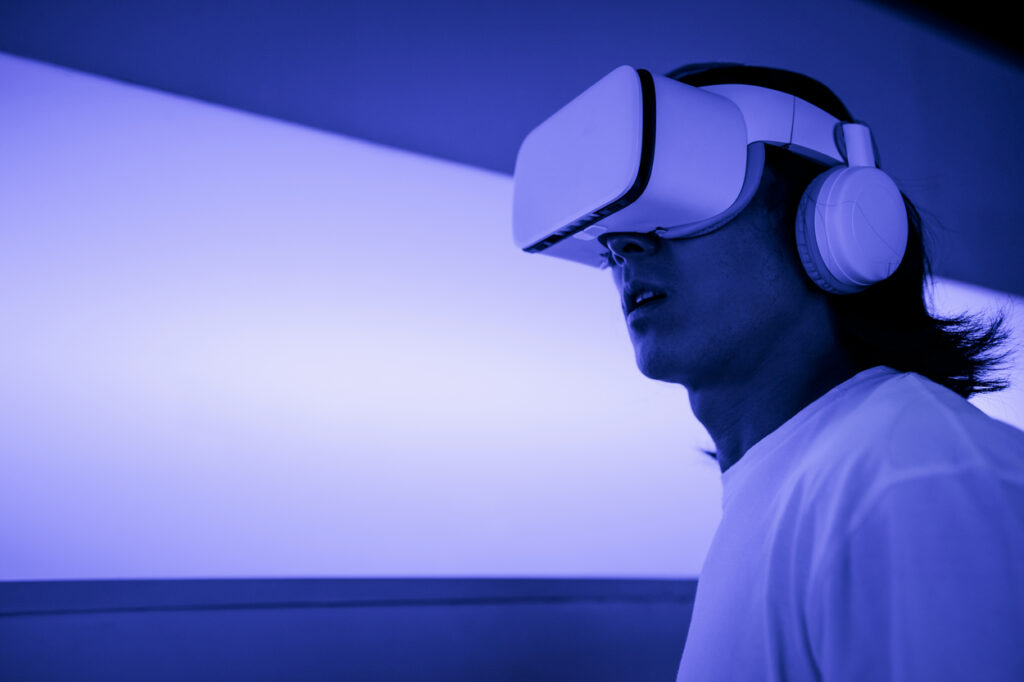A new era in recreation is unfolding as virtual reality (VR) technology begins to make its mark on entertainment and social activities in Denmark. This emerging trend has developers and entertainment providers considering VR’s potential to expand the way people enjoy digital recreation. The interest in VR spans a range of possibilities, from enhanced gaming options to virtual events and digital gatherings, bringing fresh dimensions to familiar pastimes.
As this technology progresses, its role in recreational spaces is expected to grow, potentially opening doors for activities that were previously only imagined. Though still in the early stages, these developments hint at a shift that could redefine digital leisure.
New Dimensions of Entertainment
VR is steadily gaining ground in the entertainment sector, with early applications beginning to change the way audiences experience events at home. Virtual cinema screenings, concert simulations, and even interactive performances are making it possible to enjoy events with a sense of realism, all from the comfort of one’s own space.
Although still in development, these innovations have sparked interest among audiences, especially as the technology becomes more accessible and adaptable to everyday use. VR’s potential to recreate shared, high-quality entertainment at home could mark a promising shift in digital recreation.
Social Interaction
VR is beginning to change how people interact in digital spaces. Virtual gatherings allow friends and family to meet in shared, realistic environments, offering new options for attending events or spending time together online. This approach to socialization has the potential to create more lifelike digital interactions, appealing to those looking for practical ways to stay connected.
Gaming
The gaming industry is especially well-positioned to explore VR, as developers experiment with creating interactive environments that go beyond traditional gaming formats. Local players are showing interest in VR games that bring enhanced realism and a sense of physical presence, transforming familiar gameplay into more dynamic encounters. The potential for VR gaming includes genres from sports simulations to adventure-based games, which offer players a deeper level of engagement.
While VR technology has begun making waves in the global online casino market, its presence in online casino danske platforms is still in its emerging stages. This technology has yet to become a standard feature, but as VR capabilities expand, more and more online casinos will soon explore more interactive and immersive gaming options to enhance the player experience.
Sports & Physical Recreation
VR has the potential to reshape sports and physical recreation by introducing new ways to stay active. Virtual reality fitness applications are continuing to gain interest, with activities like virtual cycling, boxing, and even rock climbing available from a single space. These VR-based exercises may offer those seeking variety in their routines or a controlled training environment an innovative way to stay engaged.
Virtual Tourism
Virtual tourism is currently providing new opportunities for people to explore famous landmarks and attractions remotely. With a VR headset, users can experience sites like Tivoli Gardens and the National Museum of Denmark, complete with visuals detailed enough to replicate the sensation of being there in person. This approach brings local culture to a global audience and offers residents fresh ways to connect with well-known locations, making these destinations more accessible and allowing for appreciation without the need for physical travel.
Digital Access to Danish Arts & Culture
In the arts and cultural sector, VR is gradually being utilized as a tool to expand access to exhibitions and performances. Galleries, theaters, and museums are experimenting with virtual formats, allowing audiences to enjoy cultural events from any location. The National Gallery of Denmark (Statens Museum for Kunst) offers virtual tours, where users can explore Danish and international artworks in high detail, recreating the experience of an in-person visit. Similarly, the Royal Danish Theatre has introduced VR performances, giving audiences unique perspectives on ballet and opera productions from both stage and behind-the-scenes angles.
These digital adaptations make it easier for both local and international audiences to engage with Danish arts and culture, enhancing accessibility and inclusivity across borders.
Expanding Horizons for Danish Recreation with VR
Denmark’s embrace of VR technology signals a new era in recreational possibilities, blending traditional entertainment with innovative digital formats. From virtual tourism to immersive gaming and interactive cultural events, VR is enriching how people engage with leisure activities and social gatherings. This digital shift has not only introduced new ways for us to stay connected and entertained but also enhanced accessibility, enabling individuals from all backgrounds to experience Danish culture, sports, and arts without geographical limitations.
As VR continues to develop, Denmark has an opportunity to lead in creating responsible, accessible VR applications that foster global connections and promote sustainable engagement. The integration of VR into various sectors reflects the country’s commitment to progressive recreation, ensuring that people can enjoy meaningful, immersive experiences, whether from home or in virtual gatherings.





